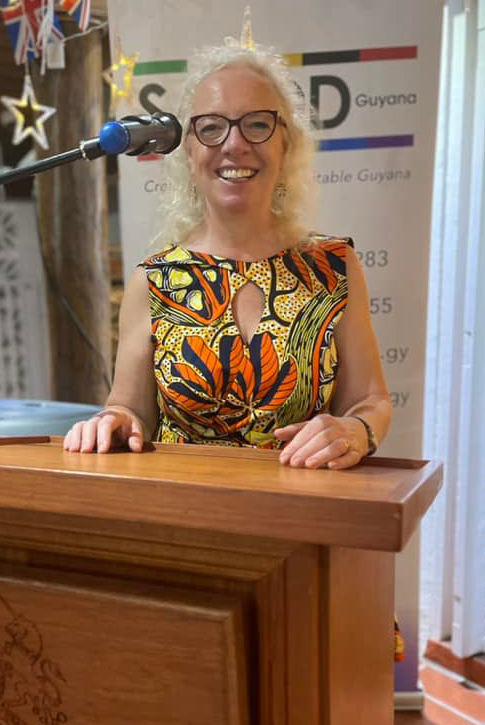With equality being the theme of this year’s Human Rights Day, British High Commissioner to Guyana on Friday said that there is still much work to be done in Guyana on lesbian, gay, bisexual, transgender and queer (LGBTQ) rights.
High Commissioner Jane Miller made these remarks during a reception held at her official residence in collaboration with the Society Against Sexual Orientation Discrimination (SASOD) to celebrate Human Rights Day.
Miller highlighted that this year’s focus is about ending inequalities across the world and removing discrimination. She noted that human rights and ending discrimination are issues she feels very passionately about and added that she was very impressed with the work done in Guyana so far as it relates to sexual violence and other issues.
According to the High Commissioner, the authorities must not be complacent as there is much more to be done, even as these are steps in the right direction. “It’s the same with LGBT rights, I’ve been impressed in Guyana in seeing how much tolerance there is for LGBT [persons] but there’s still more steps to go, particularly in terms of legislation around LGBT rights,” she said.
In addition, Miller mentioned that access to services is a critical part and, therefore, authorities must work towards eliminating discrimination.
Meanwhile, speaking briefly at the reception, Managing Director of SASOD, Joel Simpson, stated that as this year’s focus is equality, it must be noted that what has been seen over the past two years is that those communities that face the most inequalities are most vulnerable during pandemics.
“When the COVID-19 pandemic hit Guyana in March of 2020, we recognised early on at SASOD that our communities – LGBTI communities – would be severely affected by COVID. Especially because of existing inequalities and from what we know about pandemics, those kinds of health crises play on those vulnerabilities,” Simpson said.
He further noted that a survey was done showing that over 70 per cent of livelihoods were affected by the pandemic and persons lost jobs and more. Further, the inequalities were far more pronounced in vulnerable communities like the LGBT community because of existing discrimination.
Simpson also pointed out that while it was a moment to celebrate how far the world has come, there is still a far way to go in order to reduce these inequalities faced by vulnerable populations.



